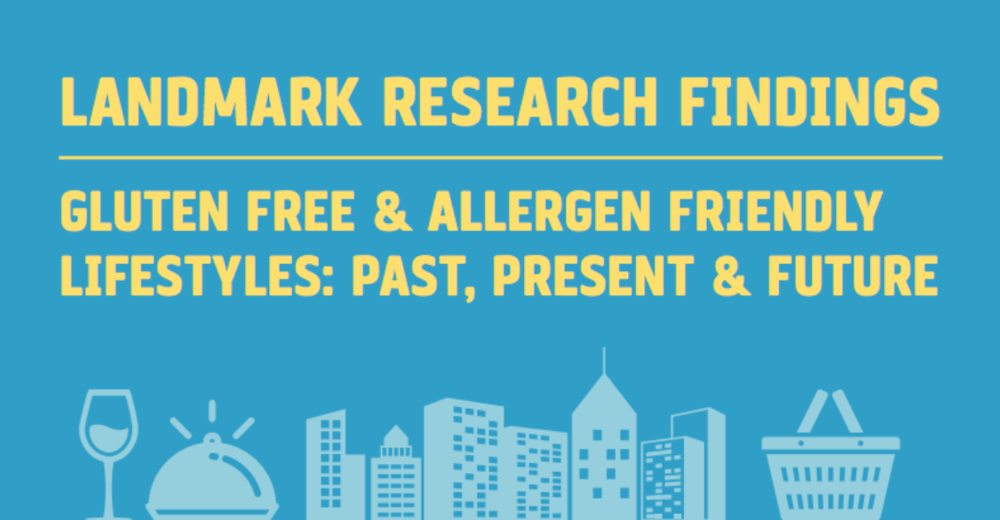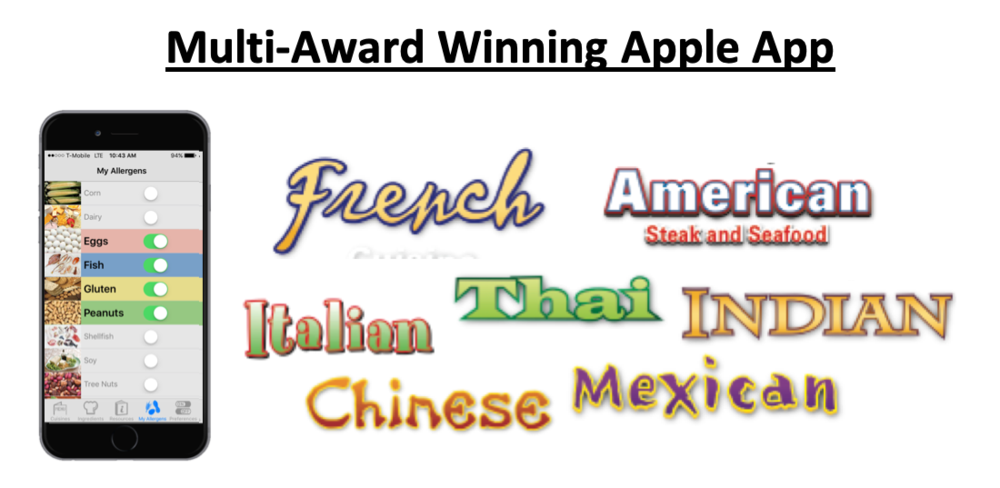Americas
Gluten Free and Food Allergies in Americas

The number of eating establishments throughout North and South America that cater to people managing diets free from gluten, dairy, peanuts and other allergens is continuing to expand. However, remember that even if the restaurant chain or hotel offers a gluten free menu or a food allergy chart, you still need to ask the right questions and review your meal to ensure safe eating experiences.
The more you know, the easier it is to dine out safely and put the control back in your hands as a customer.

For gluten free, allergy free and vegan friendly tips and restaurants, visit:
-
Country Travel Kits & Cards
-
US Fast Food Chains
-
Restaurants in Americas
-
Gluten Free Bakeries
-
Peanut and Tree Nut Free Bakeries
-
Snacks & Stores
Gluten Free & Food Allergies Across US
The National Institutes for Health declared food allergies in the US an important public health concern. Approximately 15 million Americans have food allergies, with 90% of all food allergy reactions caused by 8 foods: milk, soy, eggs, wheat, peanuts, tree nuts, fish and shellfish.

Celiac disease, spelled coeliac outside of North America, is one of the world’s most misdiagnosed diseases, impacting 1 - 2% of the population globally.
Once thought to be extremely rare in the US, celiac / coeliac disease is a genetic auto-immune disorder reflected in a permanent intolerance to gluten, the protein found in wheat, rye and barley. It is the most common genetic disorder in North America and Europe.
Based on the landmark multi-center study led by the University of Maryland, 1 in 133 Americans have celiac / coeliac disease. It is now more common in the US than Multiple Sclerosis, Cystic Fibrosis, Parkinson’s Disease, Crohn’s Disease and Ulcerative Colitis combined.
In addition, it is estimated that 20 - 25% of the American population are now following a gluten free diet due to health and wellness related considerations.
Because of this, “free-from” food markets around the world have seen double digit growth rates in recent years.
Food Allergy Survival Tips for Travelers

Studies show that almost 80 million Americans have food allergies or food intolerance, or are following gluten-free diets, according to Kim Koeller, the founder of health education company GlutenFree Passport.
Education, preparation and communication are the keys to avoiding these allergens and traveling safely, Koeller says.
-
Education - Before traveling, she says, learn how dishes at your destination are often prepared, what ingredients are used and where hidden allergens may be found.
-
Preparation - Order special airline meals in advance, and bring snacks suitable for your diet and medications for a food-related emergency.
-
Communication - Tell airlines, restaurants and hotels of your special dietary requirements.
"Instead of simply asking, 'Is this dish free of gluten, dairy, peanut or whatever allergen?' you need to ask questions based on ingredients and food preparation in restaurant language terms," Koeller says.
If you are gluten-free, sample questions could be: Are hamburgers and the flourless chocolate cake made with bread crumbs? Is the chicken flour-dusted? Are french fries fried in the same oil as breaded items such as chicken fingers? Determine what food-preparation modifications "can be made to easily accommodate your requirements," Koeller says.
Gluten-Friendly Dining Out

According to Kim Koeller, president of GlutenFree Passport and AllergyFree Passport and an expert on special diet trends, "The repeat loyal customer is amazing!". Citing market research her company conducted recently, she adds, "92% of gluten and allergen-free guests will return frequently to the same eating establishment after a positive eating-out experience. Gluten-free and allergen-free guests are a profitable and loyal market globally," she says. "There’s a terrific opportunity for increased revenues when food service professionals ‘get it’ and customers feel safe."





















